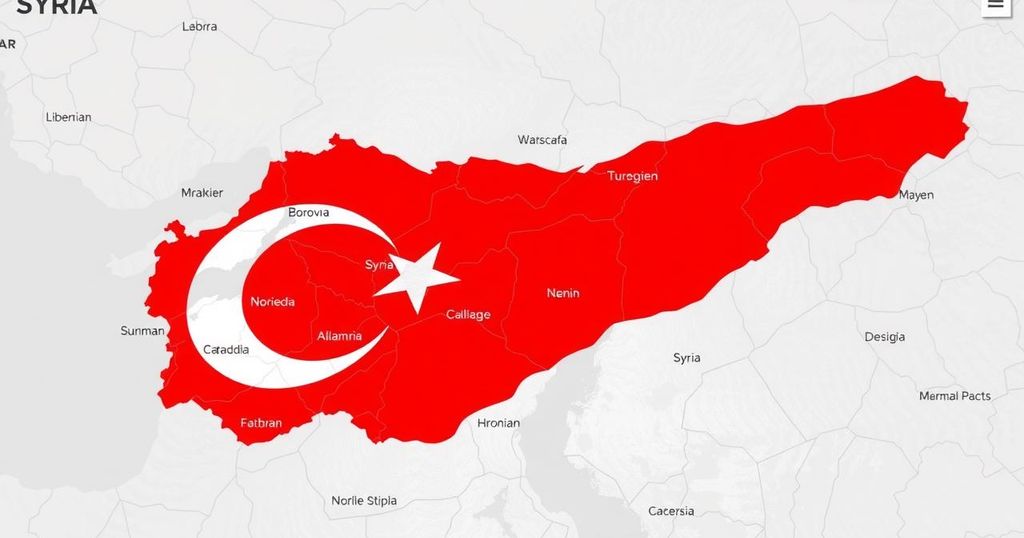Turkey has emerged as a dominant force in Syria after the rapid downfall of Bashar al-Assad’s government. The Turkish-backed offensive has transitioned from limited operations by Syrian opposition groups to a comprehensive military campaign. Turkey is now focused on facilitating reconciliation among opposition factions while addressing the return of Syrian refugees and pressing reconstruction needs, with significant financial backing expected from international donors.
Following the unexpected swift collapse of Bashar al-Assad’s regime in Syria, Turkish officials acknowledge that although the eventual downfall was anticipated, the speed of this development caught many by surprise. The initial limited operations by Syrian opposition factions, particularly Hay’at Tahrir al-Sham (HTS), were intended to counteract government attacks in areas like Idlib. However, this has transformed into a more extensive campaign leading to the capture of significant territories, reinforcing Turkey’s dominant role in the region and prompting a call for dialogue between the Syrian government and opposition.
Turkey has taken crucial measures to foster a collaborative environment among various Syrian factions while striving to maintain Syria’s institutions, as showcased by HTS leader Abu Mohammad al-Jolani’s administrative decisions. There is wide recognition of Turkey’s influence throughout the operation, with experts noting that Ankara has moderated HTS, indicating a calculated strategy. Turkey’s ultimate aim is to establish a governance framework that incorporates diverse political factions and reconciles the interests of opposing groups.
Furthermore, Turkey faces pressing issues, including the management of Syrian refugee repatriation, particularly from regions like Aleppo, which has seen economic reintegration efforts. Recent announcements about the reopening of factories suggest a potential pathway for improving the living conditions of returning refugees. However, recovery and reconstruction in Syria are projected to demand significant resources, with experts estimating a need for up to $360 billion for fundamental infrastructure repairs. Turkey is likely to play a pivotal role in coordinating these reconstruction efforts alongside financial support from entities like the Organisation of Islamic Cooperation and Gulf states.
Ultimately, Turkey’s engagement in Syria reflects a complex interplay of military strategy, humanitarian issues, and reconstruction planning, with the overarching goal of stabilizing the region and addressing the long-term needs of displaced populations.
The ongoing conflict in Syria has led to a significant shift in power dynamics following the quick fall of Bashar al-Assad’s government. Turkey has historically supported Syrian opposition forces, which has influenced regional politics and complex alliances. In recent months, strategic military actions have prompted discussions about Turkey’s future role in Syria post-Assad, particularly regarding reconciliation efforts and the governance of newly captured areas. This broad context encompasses Turkey’s intentions toward establishing a stable government structure in Syria, addressing humanitarian concerns, especially around refugees, and the imperative of reconstruction.
In summary, Turkey’s evolving role in Syria underscores a significant shift in regional power structures following the rapid downfall of Assad’s government. The successful military operations led by Turkish-backed forces have established a firm presence, prompting strategic dialogues aimed at fostering reconciliation among various factions. Additionally, the dimension of refugee return and infrastructure reconstruction will be pivotal in stabilizing the region, with Turkey laying claim to a leading role in both governance and humanitarian efforts as the situation develops further.
Original Source: www.middleeasteye.net






